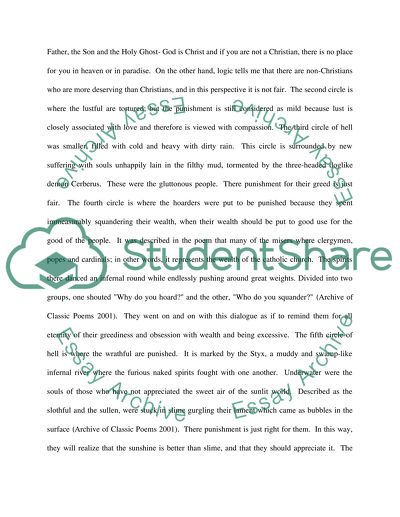Cite this document
(“Dante's Inferno Essay Example | Topics and Well Written Essays - 1000 words - 1”, n.d.)
Dante's Inferno Essay Example | Topics and Well Written Essays - 1000 words - 1. Retrieved from https://studentshare.org/miscellaneous/1544087-dantes-inferno
Dante's Inferno Essay Example | Topics and Well Written Essays - 1000 words - 1. Retrieved from https://studentshare.org/miscellaneous/1544087-dantes-inferno
(Dante'S Inferno Essay Example | Topics and Well Written Essays - 1000 Words - 1)
Dante'S Inferno Essay Example | Topics and Well Written Essays - 1000 Words - 1. https://studentshare.org/miscellaneous/1544087-dantes-inferno.
Dante'S Inferno Essay Example | Topics and Well Written Essays - 1000 Words - 1. https://studentshare.org/miscellaneous/1544087-dantes-inferno.
“Dante'S Inferno Essay Example | Topics and Well Written Essays - 1000 Words - 1”, n.d. https://studentshare.org/miscellaneous/1544087-dantes-inferno.


